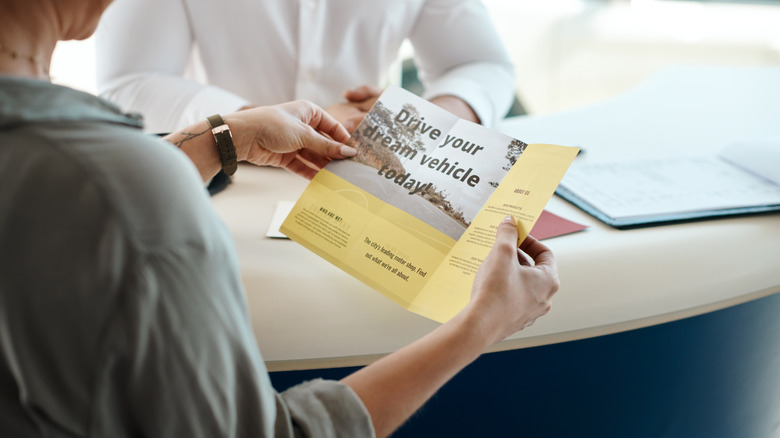Apparently, Car Dealerships Have No Obligation To Take Back Your New Car And Give You Your Deposit
Since COVID-19, there has been a steady rise in vehicle prices across the country, and excessive car prices are leaving consumers with a bad case of buyer's remorse. According to Kelley Blue Book, sticker prices in 2025 are at a record high due to factors like tariffs, federal EV tax credits expiring, and the increased demand for luxury and electric vehicles. The Trump administration's 25% tariffs that went into effect this past April, added another $6,400 per vehicle, costing automakers billions. At the same time, loan delinquencies are also on the rise, resulting in 7.5 million repossessions so far this year.
With automotive prices continuing to climb, unexpected changes in financing terms, and sometimes lack of clear communication from dealers, buyers do everything they can to stretch their budgets, prompting many to back out of car agreements. This move usually ends up backfiring because getting a car deposit back once the contract is signed isn't a straightforward process. The fact is, there's no guarantee of getting it back at all. The rise in buyer's remorse has greatly exposed how badly consumers are misinformed when it comes to dealership contracts.
The most important takeaway here is that car dealerships have no legal obligation to refund deposits or accept vehicle returns if you change your mind. According to Edmunds, a cooling-off rule does exist, but it's not applicable when buying a vehicle. Once you sign the contract, you're liable to fulfill your part of the agreement, which contradicts the universal belief that consumers have three days to think about things before losing their deposit. Understanding dealership policies and exceptions can save you tons of time and money, ultimately helping you deal with these situations like a pro.
Deposit recovery and exceptions to the dealership rule
To protect themselves, most car dealers use purchase order forms underscoring that deposits are non-refundable, and use down payments as protection from losing out on sales due to a buyer's change of heart. When a customer changes their mind and requests their deposit back, dealerships have to do a lot of work, such as cancelling the car's financing, complete the necessary paperwork to reclaim the title, and ensure the car maintains its "new" status to keep its value, then refund trade-in money.
That's a lot of effort for a lost sale. In accordance with Chase Bank, deposits become refundable only under specific circumstances, say if financing by a dealership falls through and both parties understood that financing was required. The Consumer Law Group confirms a car buyer can recover their deposit through a condition precedent, which means if financing gets denied or the terms are different from the initial agreement, a refund of the deposit is legally obligated.
It's pretty much a universal law that a car deposit may be refundable if a dealership dishonors the contractual agreement, for instance if the wrong vehicle was delivered, or the seller fails to give the buyer exactly what was outlined in the contract. Connecticut is one of many states that outlaw deceptive business practices, and if a dealership crosses that line by asking sneaky questions or any other shady tactics, the law can be used to get your deposit back and hold the dealership accountable. In California, a new law gives buyers of used vehicles $50,000 and under the right to return the car within three days, no questions asked, provided there is no damage and driven less than 400 miles.
New York senate legislation highlights that vehicle contracts, notably with distance car sales, must have an estimated delivery date, and if the car is not delivered within 30 days after that date, customers can cancel the sale and receive a full refund, unless the delays were the customer's fault. Buying a new or used car in 2025 has become more riskier than ever, requiring a lot of planning and research to avoid regret after signing your name on the dotted line. New car prices currently sit around $50,000 per transaction, $11,000 more than pre-COVID levels, while cheaper options have all but disappeared for good.

